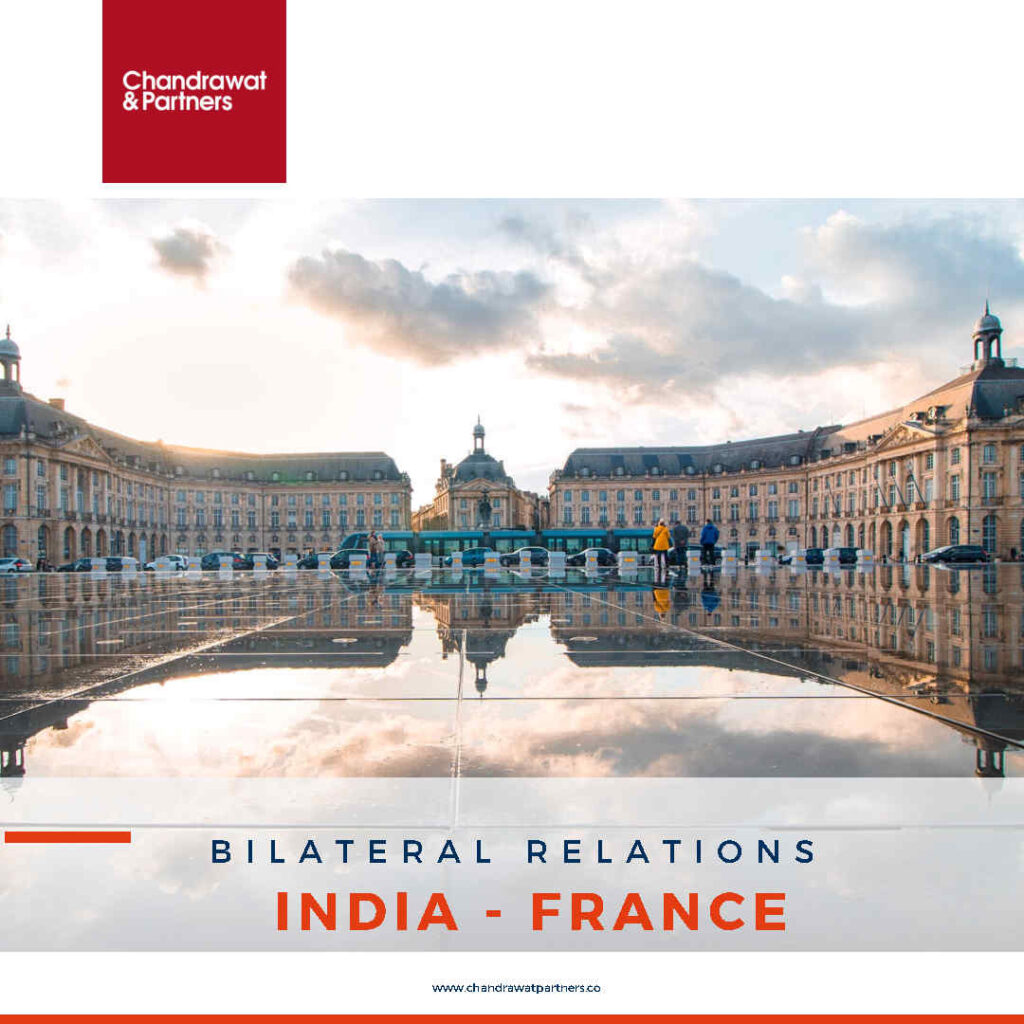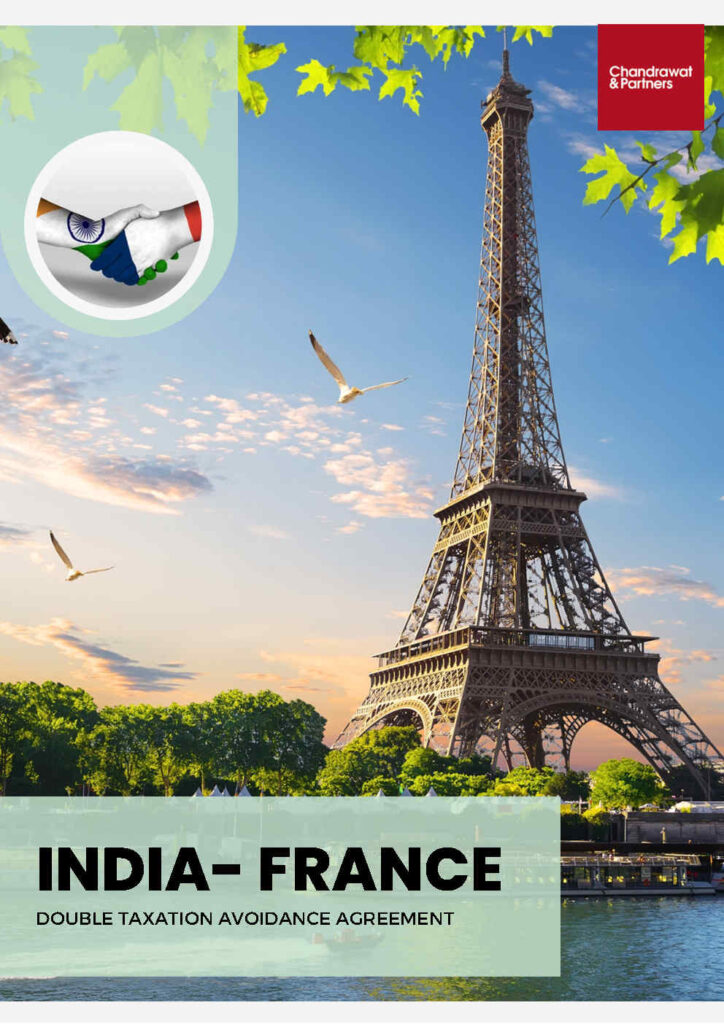We have a team of professionals to assist you with your requirements related to France, please feel free to write us at enquiries@chandrawatpartners.com
India – France bilateral relations
India – France bilateral relations
Introduction
France–India relations are the bilateral relations between France and India, two countries that have traditionally been close and friendly. Both countries have a ‘special relationship’ with each other, so much so that by August 2019, France has been called “India’s new best friend” by a researcher of the Hudson Institute. Both nations have a centuries-old history of trade relations. From the 17th century until 1954, France maintained a colonial presence in the Indian subcontinent; Puducherry, one of its former Indian territories, is a popular tourism destination for French travellers to India.
With the establishment of the strategic partnership in 1998, there has been significant progress in all areas of bilateral cooperation through regular high-level exchanges at the Head of State/Head of Government levels and growing commercial exchanges including in strategic areas such as defence, nuclear energy and space. France was the first country with which India entered into an agreement on nuclear energy following the waiver given by the International Atomic Energy Agency and the Nuclear Suppliers’ Group, enabling India to resume full civil nuclear cooperation with the international community. There is also a growing and wide- ranging cooperation in areas such as trade and investment, culture, science and technology and education. France has consistently supported India’s goals for a multipolar world, led by regional democracies.
History
In the 17th century François Bernier (1625–1688), a French physician and traveler, became for 12 years the personal physician of the Mughal emperor Aurangzeb. In the 18th century, France was actively involved in the European colonial powerplay in the Indian Ocean region.
The French General Dupleix was allied to Murzapha Jung in the Deccan, and Chanda Sahib in the Carnatic Wars, in the conflict against Robert Clive of the East India Company. These relationships were beneficial to the French, and French allies gifted areas such as the Alamparai Fort in return for the services provided by the French against the British.
The French succeeded in the 1746 Battle of Madras, and the French and Indians fought together and vanquished Anwaruddin in 1749, but failed in the Battle of Arcot in 1751 and finally surrendered in 1752. The French again had a success at the capture of Fort St David in 1758 under Lally, but were finally defeated at Machilipatnam (1759) and Vandavasi (1760).
The French military adventurer and mercenary, Benoît de Boigne, made his name in India under the Marathas, whom he assisted in many battles against the British East India Company.
French had lost pre-eminence in India with the Treaty of Paris (1763), although five trading posts were being maintained there, leaving opportunities for disputes and power-play with Great Britain. France was successful in supporting the American War of Independence in 1776, and wished to expel the British from India as well.
In 1782, Louis XVI sealed an alliance with the Maratha Peshwa Madhav Rao Narayan. As a consequence Bussy moved his troops to Ile de France (Mauritius) and later contributed to the French effort in India in 1783. Suffren became the ally of Hyder Ali in the Second Anglo-Mysore War against British rule in India, in 1782–1783, fighting the British fleet on the coasts of India and Ceylon. Between February 1782 until June 1783, Suffren fought the English admiral Sir Edward Hughes, and collaborated with the rulers of Mysore. An army of 3,000 French soldiers collaborated with Hyder Ali to capture Cuddalore.
While Great Britain established its authority over the Madras Presidency (covering the modern Indian states of Andhra Pradesh and Tamil Nadu), France retained control of Pondicherry, Karikal, Yanam, and Mahé, as well as maintaining a foothold in Chandannagar, now in West Bengal. During the British Raj, many Indian freedom fighters (Subramania Bharati, Lala Lajpat Rai, Sri Aurobindo) sought refuge in French establishments in India to stay out of reach of the British.
Trade and Investment
Indo-French bilateral trade has been growing though it has still not reached the €12 billion target set by both the Governments during the visit of the French President to India in January 2008. In 2011, bilateral trade had increased by 6% to €7.46 billion. In the first ten months of 2012, there has been a decrease of 3.71% in the bilateral trade overall the same period of 2011. Based on the annual data, the Indian exports of services to France have shown a growth in the last three years reaching €1.32 bn in 2011 while the imports from France fell to €0.66 bn in the same year.


To know more about bilateral relations between India and France, please download our booklet.
To know more about India – France, DTAA, please download our guide.
Contact Us
Get in touch with the right people to get the right help at the right time.
Contact us at: enquiries@chandrawatpartners.com



